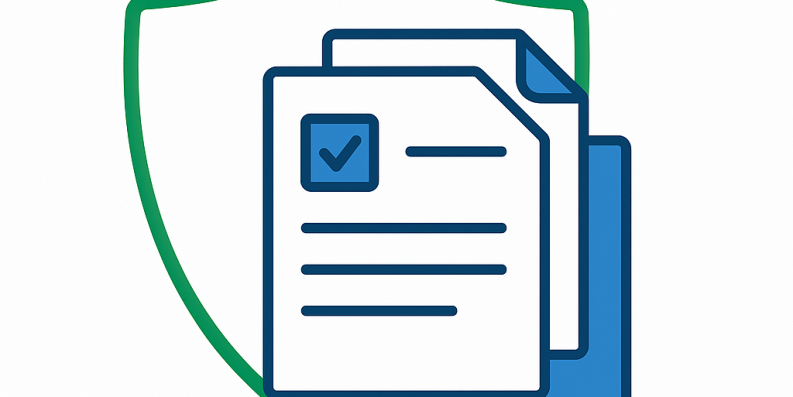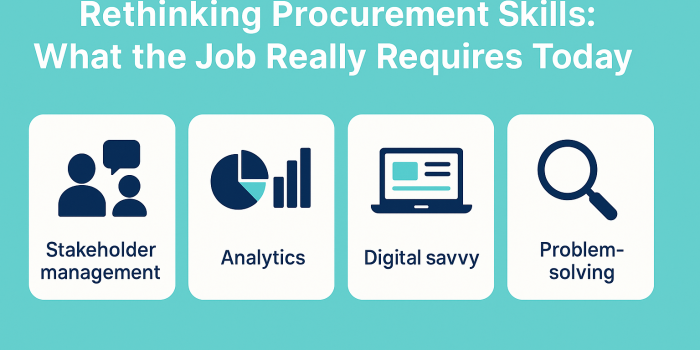🎯 Why Personal Liability for Procurement Officers Signals a New Era — And How Scale Ensures Compliance by Design
Kenya’s public procurement sector is undergoing a critical transformation. In a bold policy move, the Public Procurement Regulatory Authority (PPRA) has announced that county procurement officers will now be held personally liable for losses arising from lawsuits related to pending bills. This is not a minor adjustment, it’s a signal

Kenya’s public procurement sector is undergoing a critical transformation.
In a bold policy move, the Public Procurement Regulatory Authority (PPRA) has announced that county procurement officers will now be held personally liable for losses arising from lawsuits related to pending bills. This is not a minor adjustment, it’s a signal that accountability in procurement is getting personal.
The Sh182 Billion Problem
By December 2024, Kenya’s pending bills had crossed Sh706 billion, with county governments responsible for Sh182 billion of that total. The backlog has strained supplier cash flows, stalled critical public projects, and eroded trust in procurement systems.
For too long, delayed payments, non-compliance, and opaque processes have been quietly accepted as the cost of doing business. But now, the PPRA is shifting the burden, placing financial and legal responsibility squarely on individual procurement officers where due process hasn’t been followed.
This is a watershed moment. And it demands a new approach to procurement.
What This Means for Kenya’s Procurement Landscape
This move by PPRA sends a strong message that applies far beyond government institutions. It changes the game for:
- National and county governments
- State corporations
- Public universities and schools
- Parastatals
- Any entity using public funds
The pressure is now on:
- Procurement officers — to follow due process or face personal risk.
- Finance teams — to avoid unbudgeted exposure and legal challenges.
- Suppliers — to expect transparency, timely payments, and visibility.
- CEOs and Boards — to ensure proper procurement controls are in place.
What About the Private Sector? Does PPRA Apply?
Strictly speaking, no. The PPRA only regulates public procurement for institutions using public funds.
But the private sector is still affected in three key ways:
1. Private Businesses Supplying the Government Are Impacted
If you respond to government tenders, supply counties, or partner with parastatals, you’re already expected to meet public procurement compliance standards — even if you’re a private company.
2. Procurement Standards Are Converging
Across the board, there’s a shift toward better governance, transparency, and auditability, driven by boards, investors, and compliance officers. Corporate procurement teams are now expected to:
- Justify supplier selection
- Track spend accurately
- Ensure fair and documented evaluations
- Avoid conflict of interest and fraud
3. Reputational & Financial Risk Doesn’t Discriminate
Even if you’re not bound by PPRA, failing to manage procurement well can still lead to:
- Lawsuits from suppliers
- Internal investigations
- Brand damage
- Delayed projects or payment bottlenecks
So while the law may not require it, the risk landscape now demands it.
Why Scale Matters Now More Than Ever
Scale is built for this moment. As Kenya moves toward greater enforcement and digitisation, Scale provides a seamless, cloud-based procurement platform designed for compliance, transparency, and control for both the public and private sectors.
1. End-to-End Procurement Visibility
From prequalification to RFx, evaluations, contract award, and purchase order generation, every action is traceable. If you’re ever audited or taken to court, you have proof of process.
2. Protect Procurement Officers and Institutions
Procurement officers can demonstrate due process. CFOs and CEOs can reduce institutional risk. Everyone gains peace of mind.
3. Policy-Embedded Workflows
Our workflows mirror Kenyan procurement law and internal procurement policies for private institutions — ensuring that compliance is baked in.
4. Real-Time Notifications and Approvals
Avoid delays and missed steps with automated alerts for key actions — from evaluation deadlines to supplier obligations.
5. Supplier Transparency and Accountability
Suppliers can track the full lifecycle of their bids, receive structured feedback, and resolve issues quickly through self-service portals — reducing friction and building trust.
A Call to Action for All Procurement-Driven Organisations
Whether you’re in public service or the private sector, the message is clear: Procurement cannot be left to manual processes, memory, or misplaced files.
- If you’re a County Executive, don’t wait for a court case.
- If you run a bank or manufacturing firm, don’t risk millions through informal approvals.
- If you’re a Sacco, NGO, or utility provider, digitise before your next audit.
Scale helps you centralise procurement, reduce manual workload, and ensure full compliance, while empowering suppliers and procurement officers alike.
📆 Book a Demo Today
📞 Call: +254 701 225 522
📩 Email: procure{@}scale.co.ke
Let’s build a more transparent, accountable, and efficient procurement ecosystem, together.








